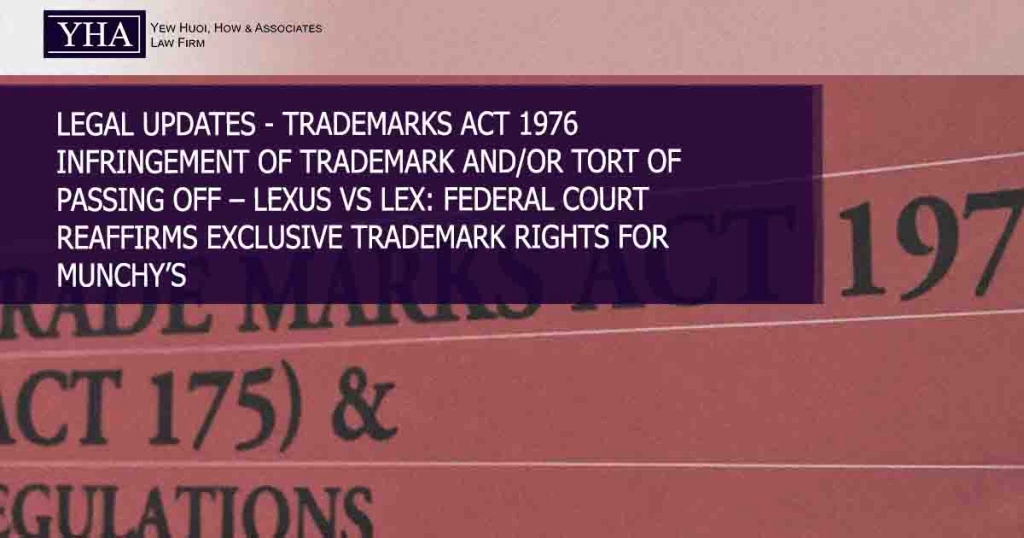1. Summary and Facts
Munchy Food Industries Sdn Bhd v Huasin Food Industries Sdn Bhd & Ors [2022] 1 MLJ 377 concerns a dispute involving Munchy’s Registered Trademark Infringement by the Defendant. Where the allegation is that Huasin LEX had infringed its trademarks and engaged in passing off, by producing and marketing biscuits in packaging that closely resembled Munchy’s trade dress (LEXUS), particularly in the use of similar colors, layout, and product presentation. In which, it is likely to mislead consumers into believing that Huasin’s products were associated with Munchy. Huasin denied infringement and argued that its packaging was sufficiently distinct and that the elements used were common in the biscuit industry. Munchy sought injunctive relief to restrain Huasin from further use of the impugned packaging, damages or an account of profits, and other ancillary orders.
2. Legal Issues
• Whether honest concurrent rights under the trademark registration system a relevant consideration in an action for trademark infringement and/or passing off where the trademark of the defendant was not registered.
• Whether variation of a registered trademark a remedy that a plaintiff should seek as an option before commencing an action for trademark infringement and/or passing off even if the trademark of the defendants was not registered.
3. Court’s Findings
• The Court ruled in favor of Plaintiff.
• Huasin’s packaging was confusingly similar to Munchy’s, thereby constituting trademark infringement under Section 38(1) of the Trademark Act 2019.
• Munchy had clearly established goodwill through long-standing use and wide market presence.
• Permanent injunction restraining Huasin from further manufacturing products was granted.
4. Practical Implications
This judgment carries significant implications for Malaysian intellectual property law, particularly in the areas of trademark protection and the overlap between statutory and common law remedies, whereby:
• The court’s approach demonstrates that infringement may occur even when the infringing product bears a different brand name, so long as the overall trade dress or get-up including color schemes and packaging elements may create a deceptively similar commercial impression.
• The court also affirms the continued relevance of the tort of passing off as a complementary common law remedy to statutory infringement.
• Hence, the plaintiff may still rely on goodwill, misrepresentation and damage to protect its business reputation.
The ruling in this case serves a clear clarification to manufacturers that imitative packaging or branding, even if partially distinct, may still attract liability where it exploits another’s established goodwill.

